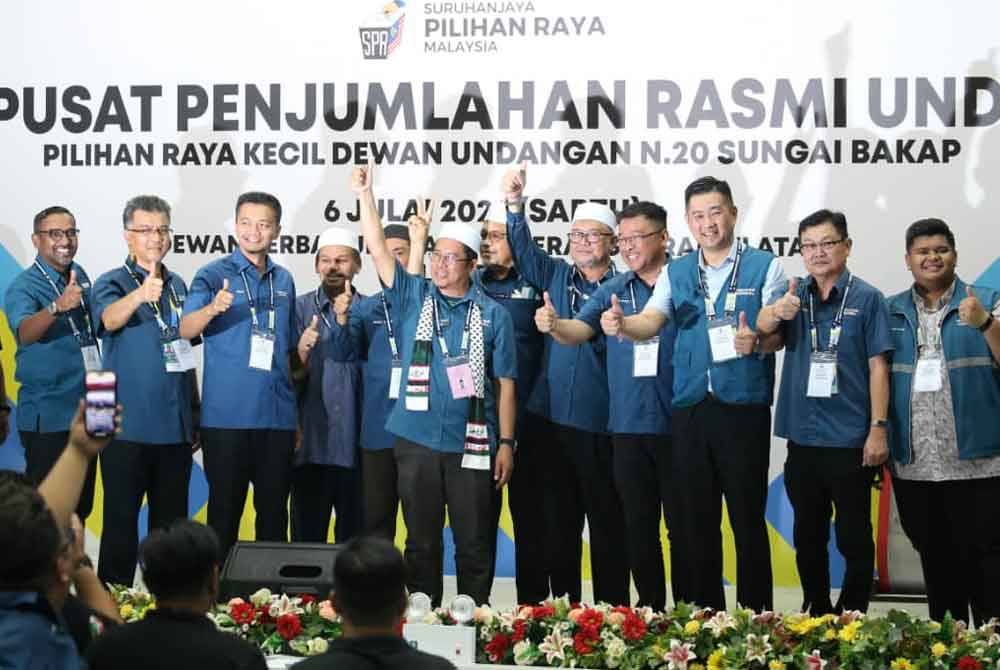Fielding stronger candidates won't work for PH as Pas becomes primary rep of Malay issues, says Merdeka Centre
“The backgrounds of candidates matter, yet they are overshadowed by party affiliation among voters"

SHAH ALAM - Pas is now perceived as the primary representative of Malay issues and has become a significant challenge for Pakatan Harapan (PH), even with candidates boasting stronger credentials.
Despite fielding stronger candidates, PH now faces the task of overcoming Pas' growing influence and resonating more effectively with the Malay electorate.
Merdeka Centre for Opinion Research Programme, Director Ibrahim Suffian emphasised that local and national issues such as water supply challenges and the impact of the targeted diesel subsidy reforms remains crucial in persuading voters thus contributing to PH's loss.
He also highlighted concerns about the economy and job prospects also persist and were not sufficiently addressed to sway voters opinions.
“Party affiliation remains robust at Sungai Bakap.
“Pas is now perceived as the primary representative of Malay issues, which poses a significant challenge for PH, even with candidates boasting stronger credentials.
“The backgrounds of candidates matter, yet they are overshadowed by party affiliation among voters. While higher education and work experience contribute, they alone cannot significantly sway support unless the candidate possesses a prominent reputation.
“Conversely, a moderately educated candidate with grassroots backing and a robust party brand can prove formidable to defeat,” he told Sinar Daily.
Ibrahim also noted that low voters turnout was anticipated.
“In the following days, we will be able to analyse voter participation across various polling stations and streams. A notable trend was the absence of working-age adults returning to their hometowns to vote, and the significant absence of Chinese voters likely impacted PH's electoral outcome.
“It is probable that voters chose not to return because the by-election would not alter the government's composition or influence policies, possibly signalling discontent over current economic concerns.
“The results indicate that voter polarisation along ethnic and generational lines has remained unchanged since the general election and state elections. This highlights the need for contesting parties to innovate and adopt new strategies if they aim to achieve different outcomes,” he added.
Ibrahim also said that given the low turnout and entrenched polarisation, parties must reconsider their outreach strategies and initiate them much earlier in the electoral process.
Meanwhile, Pacific Research Centre of Malaysia principal adviser Dr Oh Ei Sun said Pas continues to effectively mobilise its supporters to vote, whereas PH was perceived by its base as both pandering to the Green Wave ultras and engaging in internal power struggles.
“Ultimately, the Green Wave ultras viewed Pas as the best vehicle to realise their vision of a racially and religiously supremacist society, making them willing to support any candidate Pas proposed.
“The crucial factor is the party as the political vehicle capable of fulfilling voters' desires, rather than the individual candidates,” he noted.
Oh emphasised that PH should focus on consolidating their traditional multiracial base.
In contrast, he said Pas has a solid base that views them as the most capable of creating a racially and religiously supremacist society.
He said while Pas faces the challenge of convincing non-supporters, they seem confident that their strong base will be sufficient to secure victories.
“The Green Wave movement remains strong and vibrant, signalling a political future in which religious appeal will dominate. All Malaysians must brace themselves for this shift,” he added.
PN's Abidin Ismail secured the state seat in Sungai Bakap with a majority of 4,267 votes, maintaining Pas' dominance in the area.
Abidin received 14,489 votes, falling short of the late incumbent Nor Zamri Latiff's 15,433 votes. However, his victory margin significantly increased from 1,563 in August last year.
PH's votes dropped to 10,222, down from 13,870 in last year's state election.











